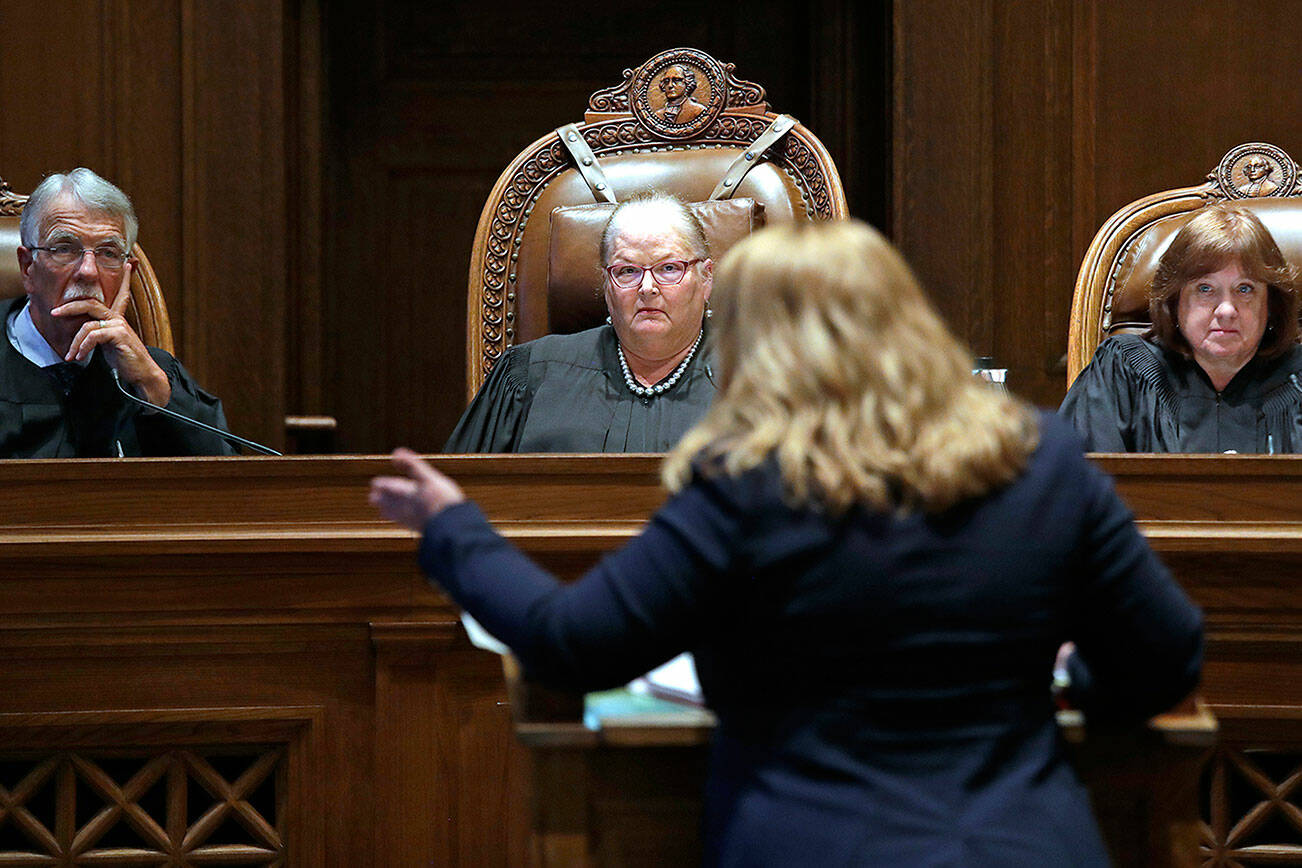By The Everett Herald
Editorial Board
We’ll keep publishing the following words until they at last take root beneath the craniums of state lawmakers who continue to look for ways around compliance with Washington’s Public Records Act:
“The people, in delegating authority, do not give their public servants the right to decide what is good for the people to know and what is not good for them to know. The people insist on remaining informed so that they may maintain control over the instruments that they have created.”
Those words are from the state initiative — passed by voters in 1972 with 72 percent approval — that created the Public Records Act law. And the act’s mandate was reiterated in a 2019 state Supreme Court decision that affirmed what Justice Susan Owens called in her majority opinion the “plain meaning” of the Public Records Act, that its requirements — to release to the public upon request a full range of documents, including correspondence, emails, text messages, draft legislation and more — apply to individual members of the state Legislature just as they apply to nearly every other government official and agency at the state and local level.
Yet, more than 50 years since the act’s passage by the voters, state legislators have fought openly — and now apparently covertly — against the act’s provisions.
Some background: The state Legislature in the final 48 hours of its 2018 session hurried a bill through — with no opportunity for public comment and no debate in session — that would have largely exempted state lawmakers from the act’s provisions. A public outcry — urged on by nearly every newspaper and news media outlet in the state — prompted Gov. Jay Inslee to veto the legislation.
Even after the 2019 Supreme Court ruling, lawmakers as recently as the 2020 session attempted to find a legislative response that would comply with the court mandate, only to seek exemptions not allowed for other state officials. That legislation failed.
Now, rather than codifying another attempt to place themselves above the law, lawmakers and their institutions have gone underground, rejecting legal requests for public records by citing “legislative privilege.”
No such privilege exists.
Earlier this month, the Washington Coalition for Open Government — a nonprofit, nonpartisan advocate for the people’s access rights to government information — warned of several recent rejections of public records requests that cited “legislative privilege.” The coalition, in a news release, rejected the claim.
“Our attorneys have examined this claim, and we can say, unequivocally, that a ‘legislative privilege’ allowing legislators to withhold documents does not exist in Washington state,” the coalition stated. “The state Legislature’s claim is unsupported by state case law; it is unsupported by state statutes; it is unsupported by the state constitution.”
The claim of privilege wants to declare authority under an article in the state constitution that holds that “No member of the Legislature shall be liable in any civil action or criminal prosecution whatever, for words spoken in debate.”
Except, notes WCOG, the phrase “words spoken in debate” has no relation to public documents, and is meant only to permit lawmakers the ability to speak freely in debate, without concern for consequence. To claim otherwise, it said, was “a tortured interpretation, unsupported by law.”
Nor does the lawmakers’ idea of privilege appear to understand the difference between being held liable for civil action or criminal prosecution and a simple request for documents and records that — we’ll say it again — belong to the people.
A look at a few of the recent rejections for record requests citing “legislative privilege” demonstrates the danger with the resulting lack of transparency.
Mike Fancher, WCOG’s president and a retired newspaper editor, wrote in a recent commentary in The Seattle Times, that the coalition knew of at least three recent instances where requests were denied citing this new special privilege, including:
A request by public radio’s Northwest News Network for House records related to a state representative’s correspondence regarding a potential impeachment attempt against the governor;
A request to the House from Washington Asians for Equity, which sought records regarding the rejection of a resolution to establish a Chinese American History Month; and
A request for emails, texts and other communications among legislators and others regarding the state redistricting commission and its controversial last-minute adoption of new congressional and legislative districts. (The records request was later approved after a news story about the earlier denial was published.)
In all three instances, it’s not hard to imagine that release of some materials related to those requests could be embarrassing to particular lawmakers. And while there are provisions in the Public Records Act for judicious redaction of sensitive information when documents are released, the potential embarrassment of a public official doesn’t fit that standard; and it certainly doesn’t justify a total denial of release of public records.
There are, of course, legitimate instances where members of the public who contact lawmakers should be protected from identification and the divulging of sensitive information in the release of public records. But the proper response by lawmakers should be to adopt legislation that affirms the Public Records Act’s authority — and the state Supreme Court’s 2019 ruling — and sets policies that outline those necessary protections, just as other local governments and state agencies are expected to follow in fulfilling requests.
Voters made clear their demands for government transparency and accountability in 1972 and reaffirmed that mandate with the 2018 insistence for the governor’s veto of an ill-conceived law.
State lawmakers need to stop inventing privileges that don’t exist and instead finally acknowledge their responsibilities. Fifty years of foot-dragging is enough.



